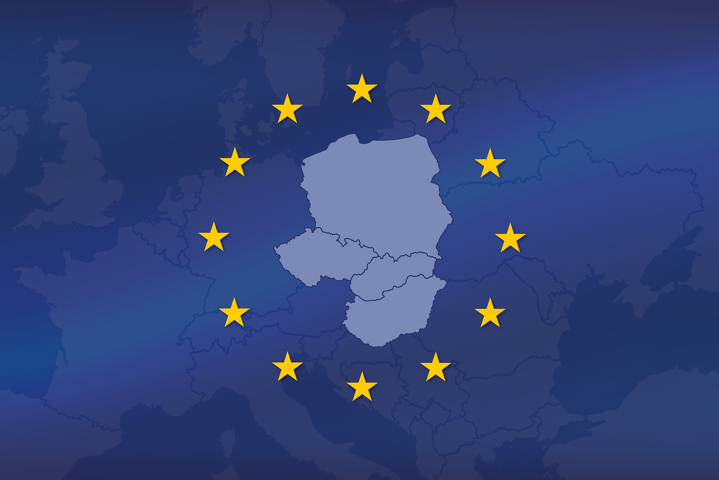On 1 May 2004, the countries of the Visegrad Group, Poland, Czechia, Slovakia and Hungary, became members of the European Union. The “big bang” enlargement, however, meant not only a closer political and economic cooperation between the East-Central and the Western parts of Europe but was also a symbol of the reunification of the continent. To commemorate 15 years of EU membership, the Antall József Knowledge Centre and the Wilfried Martens Centre for European Studies jointly organised a conference on the 24th October in Brussels. The event celebrated 15 years of EU membership and examined future perspectives and challenges that the European Union has to face.
In his welcoming speech, Balázs Hamar, Head of the Knowledge Centre's Brussels Office, quoted Prime Minister József Antall, drawing attention to the fact that the Visegrad cooperation has remained viable even after the initial goal of joining the European Union was achieved - Central European countries must work together and not see each other as rivals. Eduard Kukan, Former Minister of Foreign Affairs of Slovakia, highlighted in his keynote speech that even though 15 years is nothing in the history of mankind, the past decade and a half has been decisive for the Central and Eastern European Member States. Economic convergence is a gradual process, and there is no magic solution to shortening it.
The first part of the conference focused on the post-accession period and considered the added value of EU membership. Ambassador Olivér Várhelyi emphasized that the V4 are Germany's number one trading partner, ahead of China and the US. The four countries have also been exemplary in delivering the reforms required by the Union, making the V4 into a real "brand" over the past 15 years. Elected Member of the European Parliament Miriam Lexmann underlined the impact of Brexit on the V4 countries. The British were particularly willing to stand up for subsidiarity within the EU and with the departure of the United Kingdom, the V4 stand to lose an important partner.
Boglárka Ballester-Bólya, Deputy Minister of State for European Union Affairs, recalled that the Hungarian Presidency played an important role during the accession negotiations of Croatia and that this support is still extended to countries of the Western Balkans. The V4 thus play an important role not only within the EU but also in the Union's external affairs, contributing to a competitive and integrated Union.
The second panel discussion of the conference – moderated by Péter Dobrowiecki, Head of the EU-V4 Office of the Antall József Knowledge Centre, explored the future of regional cooperation. According to Igor Merheim-Eyre, Project Officer at the International Republican Institute, the Russian-Ukrainian conflict represents a real threat on the eastern border of Europe that calls for a unified position in Central and Eastern Europe. Meanwhile, Konrad Niklewicz, Advisor at the City of Warsaw, suggested a new, local level cooperation that would allow cities in the region to directly apply for EU funding jointly.

